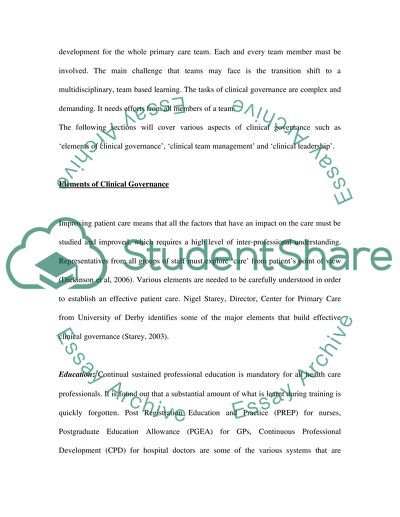Cite this document
(“Clinical Governance is an umbrella term covering a wide range of Essay”, n.d.)
Clinical Governance is an umbrella term covering a wide range of Essay. Retrieved from https://studentshare.org/miscellaneous/1524602-clinical-governance-is-an-umbrella-term-covering-a-wide-range-of-quality-accountability-and-risk-management-issues-assess-the-impact-of-clinical-governance
Clinical Governance is an umbrella term covering a wide range of Essay. Retrieved from https://studentshare.org/miscellaneous/1524602-clinical-governance-is-an-umbrella-term-covering-a-wide-range-of-quality-accountability-and-risk-management-issues-assess-the-impact-of-clinical-governance
(Clinical Governance Is an Umbrella Term Covering a Wide Range of Essay)
Clinical Governance Is an Umbrella Term Covering a Wide Range of Essay. https://studentshare.org/miscellaneous/1524602-clinical-governance-is-an-umbrella-term-covering-a-wide-range-of-quality-accountability-and-risk-management-issues-assess-the-impact-of-clinical-governance.
Clinical Governance Is an Umbrella Term Covering a Wide Range of Essay. https://studentshare.org/miscellaneous/1524602-clinical-governance-is-an-umbrella-term-covering-a-wide-range-of-quality-accountability-and-risk-management-issues-assess-the-impact-of-clinical-governance.
“Clinical Governance Is an Umbrella Term Covering a Wide Range of Essay”, n.d. https://studentshare.org/miscellaneous/1524602-clinical-governance-is-an-umbrella-term-covering-a-wide-range-of-quality-accountability-and-risk-management-issues-assess-the-impact-of-clinical-governance.


